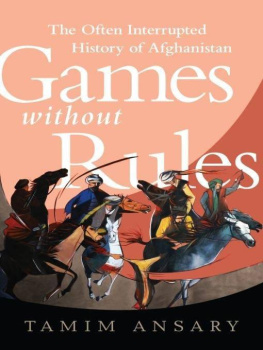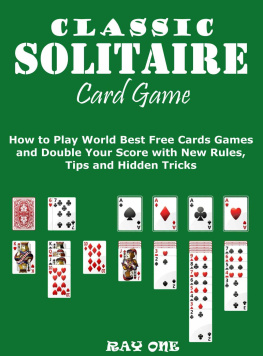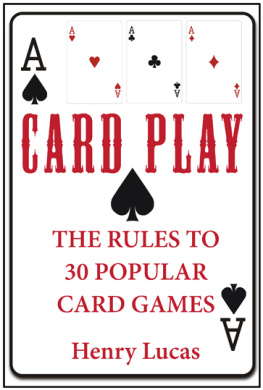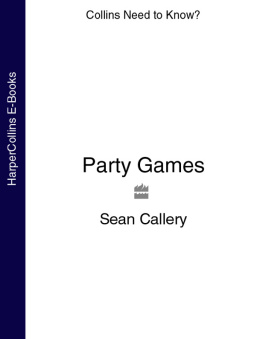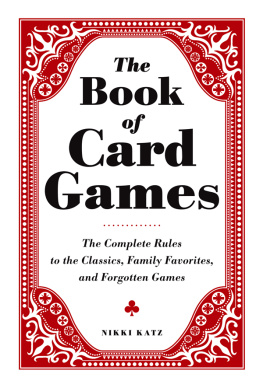Tamim Ansary - Games without Rules: The Often-Interrupted History of Afghanistan
Here you can read online Tamim Ansary - Games without Rules: The Often-Interrupted History of Afghanistan full text of the book (entire story) in english for free. Download pdf and epub, get meaning, cover and reviews about this ebook. City: New York, Afghanistan, Afghanistan, year: 2012, publisher: PublicAffairs, genre: History. Description of the work, (preface) as well as reviews are available. Best literature library LitArk.com created for fans of good reading and offers a wide selection of genres:
Romance novel
Science fiction
Adventure
Detective
Science
History
Home and family
Prose
Art
Politics
Computer
Non-fiction
Religion
Business
Children
Humor
Choose a favorite category and find really read worthwhile books. Enjoy immersion in the world of imagination, feel the emotions of the characters or learn something new for yourself, make an fascinating discovery.
- Book:Games without Rules: The Often-Interrupted History of Afghanistan
- Author:
- Publisher:PublicAffairs
- Genre:
- Year:2012
- City:New York, Afghanistan, Afghanistan
- Rating:3 / 5
- Favourites:Add to favourites
- Your mark:
- 60
- 1
- 2
- 3
- 4
- 5
Games without Rules: The Often-Interrupted History of Afghanistan: summary, description and annotation
We offer to read an annotation, description, summary or preface (depends on what the author of the book "Games without Rules: The Often-Interrupted History of Afghanistan" wrote himself). If you haven't found the necessary information about the book — write in the comments, we will try to find it.
Tamim Ansary: author's other books
Who wrote Games without Rules: The Often-Interrupted History of Afghanistan? Find out the surname, the name of the author of the book and a list of all author's works by series.
Games without Rules: The Often-Interrupted History of Afghanistan — read online for free the complete book (whole text) full work
Below is the text of the book, divided by pages. System saving the place of the last page read, allows you to conveniently read the book "Games without Rules: The Often-Interrupted History of Afghanistan" online for free, without having to search again every time where you left off. Put a bookmark, and you can go to the page where you finished reading at any time.
Font size:
Interval:
Bookmark:

Table of Contents
Afghanistan

Night and day our peoples lamentations reached the skies
and no one asked Whose voice is that, uttering those cries?
KHALILULLAH KHALILI
FROM HOUSE OF LAMENTATION
CAST OF CHARACTERS
Abdul Haq Pushtoon Mujahideen leader, killed by the Taliban 2001.
Abdul Majid Zabuli Afghan entrepreneur, founded National Bank.
Abdul Rashid Dostum Uzbek leader, affiliated with both Communists and Mujahideen.
Abdul Rasool Sayyaf Prominent Islamist, head of a major Mujahideen party.
Abdullah Abdullah Ahmad Shah Massouds top aide, presidential candidate 2004, 2009.
Ahmad Shah Baba Founder of the Afghan empire, first Durrani king, head of the Sadozai clan, father of Afghanistan, ruled 17471773.
Ahmad Shah Massoud Military commander of the Mujahideen party Jamiat Islam, minister of defense 19941996.
Ahmad Zahir Influential Afghan pop singer of the 1960s and 70s, often called the Elvis Presley of Afghanistan.
Alexander Burnes Macnaghtens political agent in Kabul, 18391841.
Amir AbduRahman, the Iron Amir Dost Mohammeds grandson, Sher Alis nephew, reigned 18801901.
Amir Amanullah Son of Habibullah, grandson of AbduRahman, ruled Afghanistan 19191929.
Amir Habibullah AbduRahmans son and successor, reigned 19011919.
Amir Sher Ali Son and successor of Dost Mohammed, ruled twice: 18631866, 18681879.
Babrak Karmal Afghan Communist president, 19801986, headed Parcham faction of the PDPA.
Bachey Saqao (Habibullah Kalakani) Tajik bandit, deposed Amanullah, reigned February to September 1929.
Burhanuddin Rabbani Islamist professor, founder and head of Mujahideen party Jamiat-i-Islam, president of Afghanistan 19941996, assassinated 2011.
Charkhi family Staunch allies of Amanullah, crushed by the Musahibbans after the fall of Amanullah.
Dost Mohammed the Great First king of the Mohammedzai clan, reigned twice: 18261839, 18431863.
Durranis Ahmad Shah Babas tribe, Durrani monarchs ruled Afghanistan from 17461978 except for the nine-month reign of Habibullah Kalakani (Bachey Saqao).
Frederic Roberts Commanded British forces in the Second Anglo-Afghan War, 18781880.
Ghilzais Major Afghan tribal confederation, long-standing rivals of the Durranis.
Gulbuddin Hekmatyar Radical Islamist, founder and head of Hezb-i-Islam.
Hafizullah Amin Khalq Party leader, architect of the 1978 coup, Tarakis right-hand man, president of Afghanistan September to December, 1979.
Hamid Karzai President of Afghanistan, 20042014.
Hashim Khan Nadir Shahs brother and prime minister, ruled Afghanistan from behind the throne 19331946.
Hazrats of Shor Bazaar Revered leading members of the religious Mujadeddi family.
Hezb-i-Islam Islamist party founded and led by Gulbuddin Hekmatyar.
ISI (InterServices Intelligence) Pakistani military intelligence agency through whom the United States funneled arms and money to the Mujahideen.
Ivan Vitkevich Russian agent in Kabul 18371838, claimed to be the czars envoy.
Jalaludin Haqqani Prominent Mujahideen warlord of the 1980s, affiliated with the Taliban after 2002.
Jamaluddin-i-Afghan Radical Islamic modernist intellectual, Sher Alis tutor.
Jamiat-i-Islam Islamist party led by Burhanuddin Rabbani and Ahmad Shah Massoud.
Khalq One faction of PDPA after the party split in 1967.
Lord (George Eden) Auckland Governor general of India 18361842, launched first British invasion of Afghanistan, 1838.
Lord (Edward Bulwer) Lytton Governor general of India 18761880, launched second British invasion of Afghanistan 1878.
Louis Napoleon Cavagnari Headed up British mission in Kabul, 1879.
Mahmoud Tarzi Prominent modernist intellectual at Amir Habibullahs court.
Malalai Iconic Afghan heroine, rallied the troops at Maiwand.
Malalai Joya Feminist activist, elected to Afghan Parliament 2004.
Massouma Esmatey-Wardak Pioneering feminist intellectual, head of Afghan Womens Council, 19791990.
Mohammedzais Dost Mohammeds clan, the royal branch of the Durranis, ruled Afghanistan 18261978.
Mujaddedis Noted religious family.
Mujahideen Islamic resistance groups who fought the Soviets in the 1980s.
Mullah Akhtar Osmani Prominent Talibanist insurgent and drug lord in Helmand province, killed by NATO 2007.
Mullah Baradur Leading Talibanist insurgent, southern Afghanistan, arrested and imprisoned by Pakistan in 2010.
Mullah Dadullah Insurgent leader of southern Afghanistan, associated with Taliban, killed 2007.
Mullah Farooq Insurgent leader in Ghazni Province, active after 2002.
Mullah Omar Reclusive one-eyed cleric considered to head up the Taliban.
Musahibbans Ruling family of Afghanistan 19291978, descended from Dost Mohammeds brother.
Nadir Shah Head of the Musahibban family, king of Afghanistan 19291933, won military victories against the British in the Third Anglo-Afghan War.
Najibullah, the Ox Member of Parcham, head of the secret police organization KhAD, president of Afghanistan 19881992.
Naseerullah Babar Pakistan interior minister under Benazir Bhutto, one architect of the Taliban.
Northern Alliance Confederation of Mujahideen parties opposed to the Taliban; organized by Ahmad Shah Massoud.
Nur Mohammed Taraki Afghan Communist president 19781979, head of Khalq faction of the PDPA.
Osama Bin Laden Radical Jihadist, founder of al-Qaeda.
Parcham One faction of the PDPA after the party split in 1967.
PDPA (Peoples Democratic Party of Afghanistan) Afghanistans main Communist Party, founded in 1965.
Qasim Fahim Led Northern Alliance after Ahmad Shah Massouds death.
Queen Soraya Tarzis daughter, Amanullahs wife, leading Afghan feminist.
Quetta Shura Taliban leaders loyal to Mullah Omar, operating from Quetta, Pakistan after 2002.
Sadozais Ahmad Shah Babas clan, a branch of the Durranis. Sadozai kings ruled from 1747 to 1826.
Sardar Ayub Sher Alis son, beat the British at the Battle of Maiwand.
Sardar Daoud Nadir Shahs nephew, ruled Afghanistan as prime minister 19531963, and then as president 19731978.
Sardar Naeem Nadir Shahs nephew, foreign minister 19531963.
Shah Mahmoud Nadir Shahs brother, ruled as prime minister, 19501953.
Shah Shuja Ahmad Shahs grandson, reigned twice (18031809, 18391842). Installed by the British in 1839.
Sher Agha Mujadeddi Leading opponent of Amanullahs reforms in the 1920s.
Siddiq Barmaq Filmmaker, directed the film Osama.
Wazir Akbar Khan Son of Dost Mohammed; leading Afghan general during First Anglo-Afghan War, 18391842.
William Hay Macnaghten Headed the British mission in Kabul, 18391841.
Yaqub Khan Sher Alis son, installed as king by the British, 1879.
Zahir Shah Nadir Shahs son, king of Afghanistan 19291973.
Zalmay Khalilzad Afghan neoconservative intellectual and diplomat, advisor to the Reagan and Bush administrations on Afghan affairs.
INTRODUCTION
FIVE TIMES IN THE LAST TWO CENTURIES, SOME GREAT POWER HAS TRIED to invade, occupy, conquer, or otherwise take control of Afghanistan. Each intervention has led to a painful setback for the intervening power, and the curious thing is, these interventions have all come to grief in much the same way and for much the same reasonsas if each new power coming into Afghanistan has vowed to take no lessons from its predecessors.
The British invaded Afghanistan in 1839, suffered a disaster, and yet invaded the country again some forty years later only to make nearly the same mistakes. The predecessor from whom these folks failed to learn was themselves! Forty years later still, a third war broke the British grip on the country entirely. Sixty years after that, the Soviets invaded Afghanistan and ended up in the same tar pit as the British. Now, the United States and NATO are mired in Afghanistan, and the familiar patterns have emerged again.
Next pageFont size:
Interval:
Bookmark:
Similar books «Games without Rules: The Often-Interrupted History of Afghanistan»
Look at similar books to Games without Rules: The Often-Interrupted History of Afghanistan. We have selected literature similar in name and meaning in the hope of providing readers with more options to find new, interesting, not yet read works.
Discussion, reviews of the book Games without Rules: The Often-Interrupted History of Afghanistan and just readers' own opinions. Leave your comments, write what you think about the work, its meaning or the main characters. Specify what exactly you liked and what you didn't like, and why you think so.

